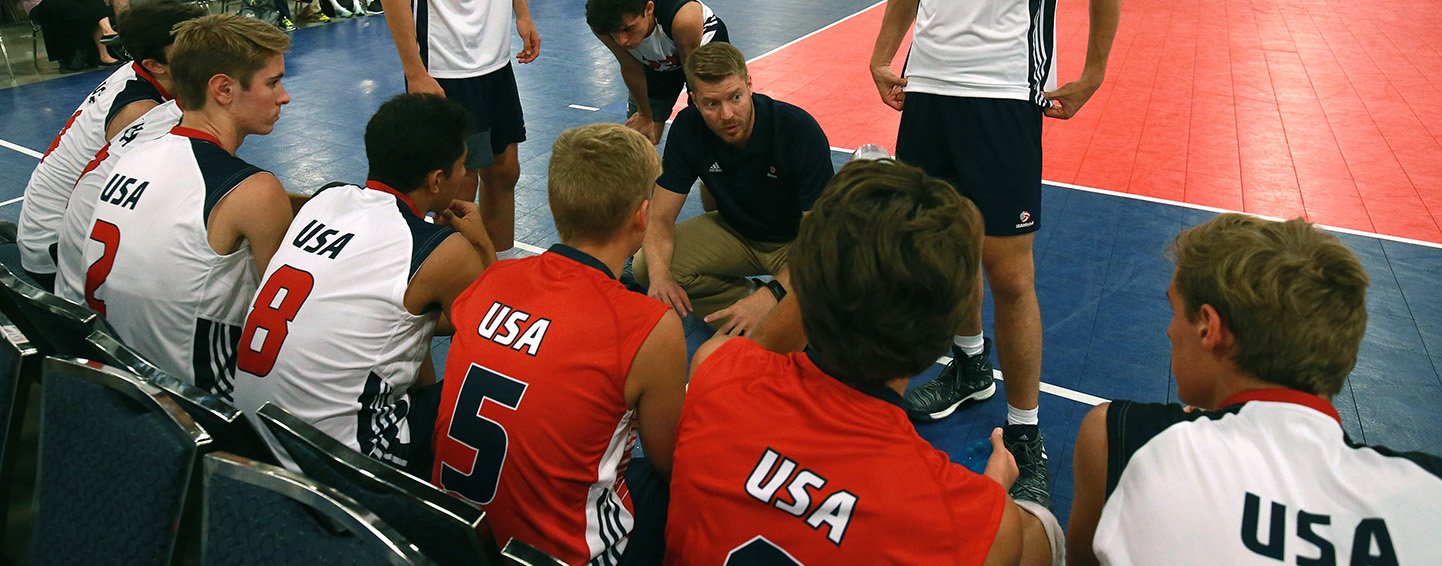
This article originally appeared in the Fall 2020 edition of Your Court, USA Volleyball’s digital magazine.
“Communication is what connects us all,” said Ian Choi, head women’s volleyball coach at Fordham University in New York. “I believe that miscommunication is a large majority of the root of conflict.”
That’s why he and his coaching staff work so hard to establish effective communication on the team. He says this is somewhat easier to do with collegiate players because they are with a program for four years, but Choi also stressed communication skills when he coached juniors.
Choi understands that for juniors, playing time is often the priority as players are aiming to be recruited to play in college. That can sometimes lead to conflict.
“It’s really important that the coach communicate [their] coaching philosophy as it extends to everything in the program,” Choi said.
One of Choi’s collegiate players mentioned to him that her 17s team had a hard time bonding because of anxiety over the lack of college commitments. The tensions on that team weren’t immediately stamped out by team leadership.
“Not only by her coach, but the captains on the team,” Choi said. “It’s pretty easy for that kind of a team to be less harmonious.”
That’s why knowing a coach’s philosophy is important. A coach that prioritizes respectful communication regardless of the issue will work with players to not only be their individual best, but also be the best teammates. He also advocates openness and polite honesty.
Dr. Peter J. Economou, board certified in cognitive and behavioral therapy and certified mental performance consultant, works with both collegiate and professional athletes. He says team-building exercises can facilitate respectful communication.
“The key for team building is to create vulnerability in a healthy and boundaried way with teammates,” Economou said. “That can foster connection and allow for teammates to connect with one another.”
A key area of conflict can be cultural differences. Economou said there may be different cultural expressions—both verbal and nonverbal. He suggests some cultural sensitivity training as a way to ease communication.
“One of the best ways is asking open-ended questions,” Economou said. “If I can foster curiosity in my team, then they’re wanting to learn more about the other person rather than issues arising because people are trying to be right. If I can foster curiosity within that vulnerability, communication and cultural sensitivity, then teammates want to learn about somebody rather than trying to impose their beliefs or truth onto them.”
Shared goals are always important as is accepting each other’s humanness. Sport is a bond that goes much deeper than a game or match. If tensions are rising, Economou says take three deep breaths. That can alter one’s mood and allow for communication.
Choi uses a team exercise called “rose, thorn and soil.” Each member of the team, including the coaching staff, speaks about what their rose of the day was. That means something nice or fun. The thorn is something that was a pain that day. Soil is something each person is grateful for that if they hadn’t stopped to give it thought they may have overlooked.
“Just talking about that peers into the soul of every one of your teammates for just a brief moment,” Choi said. “It reveals everyone is human and fallible. We all have our flaws and struggles that we’re going through.
“When you see another individual like that, you’re more inclined to give them a break and not have a deficit view of each other,” he said. “We have to give each other the benefit of the doubt.”
To build trust, Choi recommends activities that require teamwork. This could be an escape room or a group scavenger hunt because that sense of teamwork translates to the volleyball court. Obviously, these are not in-person options at this time of social distancing, but perhaps teammates can find a virtual equivalent.
Teamwork often translates to wins on the court, but it also benefits athletes off the court. One possible outcome of teamwork is learning to celebrate differences rather than feeling challenged by them.
“Learning how to communicate with people who don’t share our same values or cultures is a skill that will translate over to life,” Economou said. “We could definitely use a lot more of that in today’s world.”

